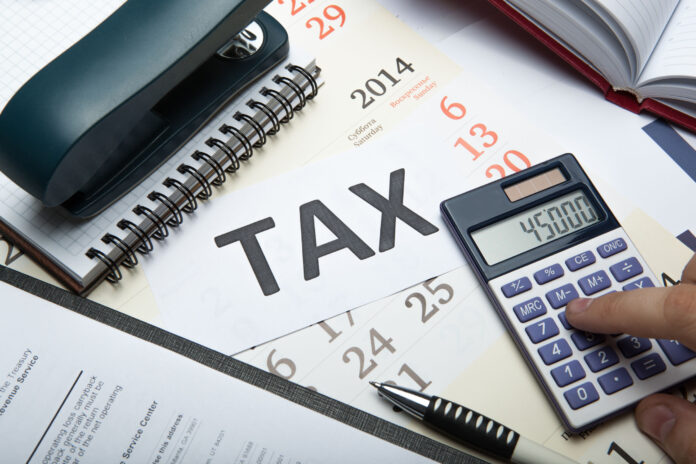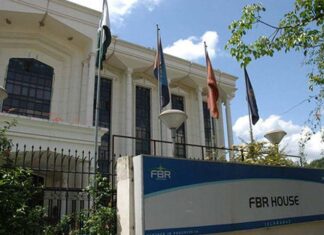Senate Standing Committee on Finance, Revenue and Economic Affairs has approved a fixed tax regime for small traders.
The meeting was held under the chair of Senator Saleem Mandviwalla to consider and finalize the recommendations on Finance Bill, 2022, containing the Annual Budget Statement laid in the House on 10th June, 2022.
Chairman FBR Asim Ahmad informed the committee that a fixed tax regime for small traders is being proposed wherein tax will be collected along with electricity bills.
Small Traders will pay Rs3,000 per month up to monthly electricity bill of Rs30,000, Rs5,000 per month up to electricity bill of Rs50,000, Rs10,000 per month up to electricity bill of Rs100,000 and this will be a final discharge of tax liability, he added.
Chairman also informed that FBR has data of 2.3 million commercial connections and it is expected that we will collect taxes from small traders.
The committee approved the proposal of FBR after deliberating.
Member FBR informed that we have also proposed to collect Rs50,000 per month for special classes including car dealers, precious watches as final tax on the basis of their monthly electricity bill.
The committee asked the FBR how to define the person or class of person. It recommended further defining the person or class of person in collecting Rs Rs50,000 sales tax on the basis of their monthly electricity bill.
The committee also approved disconnection of gas and electricity connections of TIER-1 retailers who not only fail to register for sales tax but are not integrated with the FBR’ computerized system.
Member Inland Revenue policy FBR informed the committee that FBR has proposed to reinstate exemptions on a number of items as well as goods imported by various agencies of the United Nations, diplomats, diplomatic missions, and other privileged persons and organizations.
The Chairman Committee said that we had recommended in the mini budget announced in January this year to keep the exemptions intact but FBR had not paid heed to our recommendations. Now the department is mulling for exemptions.
The committee unanimously approved restoring exemptions on goods imported by diplomats, other privileged persons, and organizations.
On the other hand, the committee recommended an exemption from tax on silver and gold in unworked condition, tractors, seeds for sowing and imported machinery equipment for exclusive use.
Senator Zeeshan Khanzada gave a descending note on the exemption of taxes on gold, silver and sowing seed whereas Senator Saleem Sabzwari only gave his descend note on the exemption of tax on sowing seed.
The committee also asked FBR to refer the sales tax collection from matiari transmission line matter to the National Tariff Commission or Council of Common Interest as these forums can decide the federal and provincial government issues.
FBR has informed the members that it is collecting sales tax whereas the Sindh government has a point of view that they can charge services tax on the Production transmission and distribution of electricity.
Member Customs policy informed the committee that the essential commodities like food items, fertilizers and other items of daily use are prone to smuggling out of the country through all international borders due to disparity in their prices in comparison with international market, smuggling of items may result in their shortages in domestic market causing exponential hardship to the common man of the country therefore proposed to define “essential commodities”.
The committee was also briefed on the Import Policy Order 2020 which provides option of change in consignee name for frustrated cargo by Customs Authorities while custom Act, 1969 only provides option of re-export or re-shipping of frustrated cargo, therefore, the amendment has proposed to align customs act 1969 with Import Policy Order, in order to resolve the congestion caused on the port by the un-owned cargoes.
Leader of the Opposition Senator Shehzad Waseem sought details particularly on defining the “changed consignee” and under what circumstances.
The amendment was deferred for further explanation by the Customs Authorities in the next meeting.
The amendment of the collective customs to time to time fix the period after the expiration of which goods left in any customs house, shall be subject to payment of fees, was unanimously omitted by the Senate Committee
Chairman Finance Committee Senator Saleem Mandviwalla has maintained that the Senate committee emphasized on making the law more clear and comprehensive enough to avoid the chances of misuse due to ambiguity adding that he stated that enforcement of taxation laws should be through bills and not ordinances.























